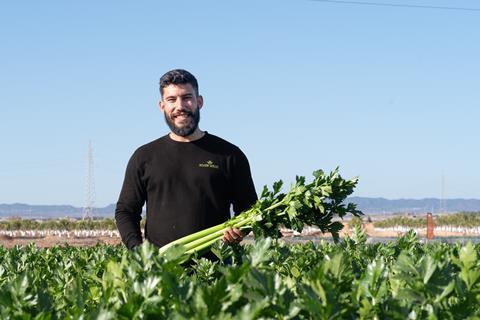The company is working on new varieties adapted to high temperatures in the celery, coriander and leek segments
Seed specialist Tozer Ibérica is working on the development of new vegetable varieties that are more resistant to high temperatures, water scarcity and extreme climatic phenomena without genetic modification.

“The optimisation of resources is our main objective,” said sales technician Manuel Hernández. “The climate is changing and from the best natural genetics what we are looking for is to give materials and solutions to our customers, who are increasingly suffering from the risk of hydrological shocks and, above all, high temperatures.”
In May, Spain’s Meteorological Agency AEMET published a forecast showing that there is a high probability that this summer will be one of the hottest on record. “This is a cause of concern to our customers. To ensure good yields, we are only marketing batches with high germination potential,” Hernández said.
Tozer said climate change is also affecting the growth rate of the plants. This is evident in crops such as celery. Cleopatra, a slow growing variety that is very tolerant to high temperatures, is Tozer’s star product in this category. The company also has a number of new varieties that will launch commercially in the next few months. They include the TZ9533 and TZ9524 varieties, both of which are suitable for the fresh pre-pack market and for sticks.
In coriander, Tozer said its Bolero and Flamenco varieties both tolerate extreme weather. And in the leek segment, the company working on the development of new varieties adapted to the new climatology.
Tozer’s varietal development team is made up ten people, including breeders, field technicians, technicians and personal farm assistants. The unit, located in Murcia, works closely with a team of experts in the UK.
“Tozer has a huge effort to move a large part of its operations to Spain, one of its main markets and a strategic geographical area due to its extreme climatic conditions,” Hernández said.
“Every day climatology obliges us to segment the best teams by countries and latitudes. The strategy is to develop parental lines in our country, with genetic dominance to support these conditions, and finally obtain F1 hybrids that inherit these characteristics of their ancestors.”
In order to present new developments, Tozer plans to hold field days in the United Kingdom and the Netherlands at the end of the summer. They will be the occasion to present their new parsnip varieties, which could not be shown at the Murcia Open Days due to their different seasonality.



